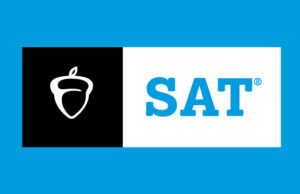Standardized tests unrepresentative of character
Sara Gabriele/Editor-in-Chief
The ACT and I are not on good terms. We had a rocky relationship junior year, and I still have vivid memories of the three hours of early morning hell I had to suffer through too many times. No matter my scores on practice tests, my hands would begin to sweat as I took my seat in the over-bright lecture room, and I’d find myself staring blankly at pages filled with questions on semi-colons and tangent lines that supposedly equated to everything I had learned in my four years of high school.
A great ACT or SAT score is nothing to belittle. Especially when studied for, it marks a significant accomplishment.
However, these tests are not accurate measures of a student’s academic potential. The tests were designed to predict students’ academic success in their freshman years of college, but in study after study, they fail miserably to do so.
Research findings suggest that other factors, like perseverance, creativity and social savviness, are much better predictors of a student’s potential for success. Standardized college entrance exams reflect only specific knowledge and skills, and in doing so, skim over these much more significant elements of character. Three hours is a mere thin slice of a student’s academic career, and for students who develop test anxiety like I did, the score can be a skewed representation of their abilities.
Despite these findings, colleges still consistently weigh standardized test scores as one of the most important factors in a student’s admission. It is no secret why admissions boards continue to do this; selecting their class from thousands of applicants is a daunting task, and standardized tests give a concrete measure that can be easily compared and quickly sorted.
Traits like leadership and creativity take more time to gauge, requiring writing samples, resumes and letters of recommendation. For schools with tight budgets that receive tens of thousands of applicants, this may be unrealistic.
But heavily weighing a measure that has been proven to show very little is not a good solution to the problem. Schools should focus on developing faster methods to assess student abilities that center on longevity and research-backed character traits. Smaller liberal arts schools that receive less applicants should consider adopting the new models of schools like Clark University and Smith College who have completely eliminated standardized test scores from their admissions process.
For something as significant as college admissions, students deserve an accurate indicator of their potential.








You must be logged in to post a comment Login